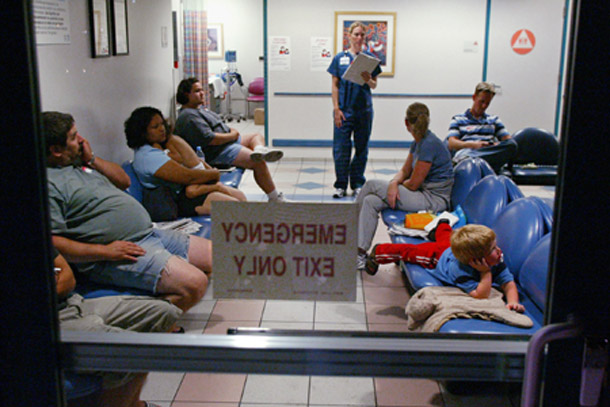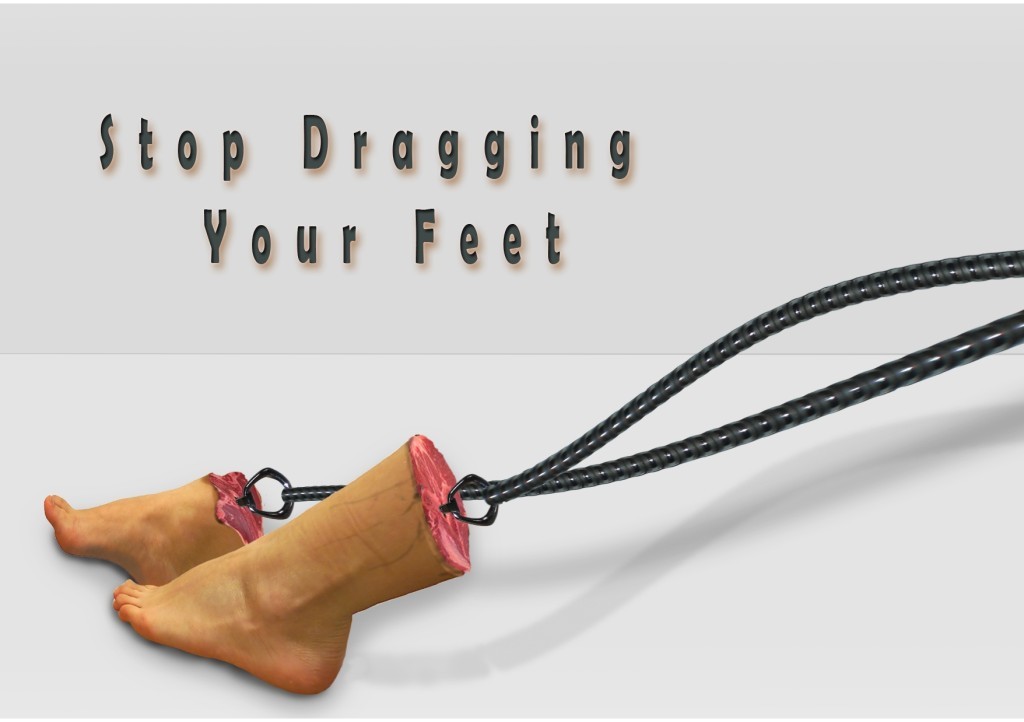
Until recently, hospitals in California had little reason to reduce the fees they charged for procedures like knee and hip replacement. Insurance companies might come their way, trying hard to bargain down their rates. But the hospitals knew that if enough of them said “no” to these lower fees, insurance companies would be left with very small provider networks, and would therefore have a hard time attracting customers.
But that changed in 2011, when the California Public Employees’ Retirement System (CalPERS) adopted a program of “reference pricing,” a policy that wasrecently shown to reduce the price of these procedures by more than 25%.
Here is how the program worked. California public employees were told they could use any hospital, and any orthopedic surgeon, they wanted to, but with the understanding that their insurance would cover only $30,000 of hospital expenses for their hip or knee replacement procedures. So if a patient chose a hospital that charged $40,000 for such a procedure, that patient would be financially responsible for that extra $10,000. The results of this program were dramatic… (Read more and view comments at Forbes)
Rational Thinking in Wartime
 During a particularly miserable World War II battle, a military analyst estimated that it cost $25,000 in artillery shells for each enemy soldier killed. That caused one soldier to ask: “Why wouldn’t it be better to just offer the Germans $25,000 to surrender?”
During a particularly miserable World War II battle, a military analyst estimated that it cost $25,000 in artillery shells for each enemy soldier killed. That caused one soldier to ask: “Why wouldn’t it be better to just offer the Germans $25,000 to surrender?”
If only the world were so rational!
(Click here to view comments)
Colorful Writing from Rick Atkinson
 I thought I would share this paragraph with you:
I thought I would share this paragraph with you:
“They tramped through a land as exotic as North Africa, a land of village witches and exorcists, where the sick swallowed powdered amber or drank the dust of St. Peter’s bones. Big-wheeled carts clattered on iron rims over the cobblestones; the scenes painted on their sides showed the martyrdom of Christ or cinema stars from the 1920s. Dray horses with blinkers ‘depicting the life and death of a saint, right and left respectively,’ clopped past women combing nits from their children’s hair and old men pouring drinks from five-cornered canvas wine flasks splotched with purple stains.”
(Click here to view comments)
Military Tactics

WWII Gen. Terry de la Mesa Allen on military strategy: “Tactics are nine tenths audacity.”
On Healthy Soldiers
 In World War II, soldiers were reminded regularly to take their anti-malaria pills. One soldier summarized this practice as follows: “Like fat cattle who are pampered to the very doors of the slaughterhouse, it was important that if and when we died we should be in good health.”
In World War II, soldiers were reminded regularly to take their anti-malaria pills. One soldier summarized this practice as follows: “Like fat cattle who are pampered to the very doors of the slaughterhouse, it was important that if and when we died we should be in good health.”
Gulp.
(Click here to view comments)
Why Poor People Like Hospitals
 Healthcare markets are complex and confusing places. But one fact is simple and straightforward: all else equal, hospitals and emergency departments are a lot more expensive than outpatient clinics. Which makes it all the more bewildering that so many low income patients prefer hospitals over primary care clinics.
Healthcare markets are complex and confusing places. But one fact is simple and straightforward: all else equal, hospitals and emergency departments are a lot more expensive than outpatient clinics. Which makes it all the more bewildering that so many low income patients prefer hospitals over primary care clinics.
Bewildering until now. Shreya Kangovi and colleagues at the University of Pennsylvania interviewed low income patients and discovered some fascinating reasons why they aren’t attracted to primary care clinics.
It starts with affordability. When patients lack health insurance, it is hard to make appointments at primary care clinics which, like most healthcare practitioners, initiate their evaluation of patients with a procedure sarcastically referred to as a “wallet biopsy.” If you want an appointment to see a primary care physician for an earache, the appointment clerk is going to ask you about your insurance… (Read more and view comments at Forbes)
The Psychology of Entrepreneurial Success
 In a recent post, I give you a flavor for Rich Cohen’s wonderful book The Fish That Ate the Whale. One of the things that struck me in reading his book was the psychology of entrepreneurial success. It is often difficult to be a superstar entrepreneur if you are realistic. Often the biggest successes in business are people willing to take ridiculous risks. Cohen captures that well: “There are times when certain cards sit unclaimed in the common pile, when certain properties become available that will never be available again. A good businessman feels these moments like a fall in the barometric pressure. A great businessman is dumb enough to act on them even when he cannot afford to.”
In a recent post, I give you a flavor for Rich Cohen’s wonderful book The Fish That Ate the Whale. One of the things that struck me in reading his book was the psychology of entrepreneurial success. It is often difficult to be a superstar entrepreneur if you are realistic. Often the biggest successes in business are people willing to take ridiculous risks. Cohen captures that well: “There are times when certain cards sit unclaimed in the common pile, when certain properties become available that will never be available again. A good businessman feels these moments like a fall in the barometric pressure. A great businessman is dumb enough to act on them even when he cannot afford to.”
At one point, Zemurray borrows money from some shady characters to pay off his business partner. Cohen summarized the situation: “What was Sam thinking, piling debt on debt, risk on risk? By buying out Hubbard, he was taking it all on his own shoulders. But what did it matter? If he failed by himself, he would lose the exact same amount as if he failed with a partner: everything.”
And sometimes, great business people have an intuitive grasp of social psychology that exceeds that of most PhD students. Take this description of how he negotiated with the folks from United Fruit, before he took over the company: “According to friends, Sam was a sharp trader who knew the price goes to he who does not lose his head or open his mouth too soon. What cannot be accomplished by threats can often be achieved by composure. Sit and stare and let your opponent fill the silence with his own demons.”
And then finally, there is the important ingredient of never being satisfied. As Cohen summarizes it: “Show me a happy man and I will show you a man who is getting nothing accomplished in this world.”
That thought makes me miserable.
(Click here to view comments)
The Critical Side Effect Doctors Aren't Discussing: Out-of-Pocket Costs
In this video, I talk about why doctors should talk to patients about out-of-pocket costs when evaluating treatment options.
Medicaid Dragging Its Feet Over Generic Drugs
 We have experienced an impressive slowdown in the growth of healthcare expenditures in recent years, a slowdown attributed in part to the plethora of important drugs which have gone generic in recent years. But state Medicaid programs, according to a recent study in Health Affairs, could have slowed healthcare costs even more, if they had been quicker to switch patients from trade to generic pills.
We have experienced an impressive slowdown in the growth of healthcare expenditures in recent years, a slowdown attributed in part to the plethora of important drugs which have gone generic in recent years. But state Medicaid programs, according to a recent study in Health Affairs, could have slowed healthcare costs even more, if they had been quicker to switch patients from trade to generic pills.
The study, by Christina Kelton and colleagues, looked at how quickly states adopted generic fluoxetine (better known as: Prozac). This drug went generic in 2001, by which time state Medicaid programs were spending (gulp!) over $400 million dollars per year on it. With the switch to generic, that meant a nice bit of savings for these cash starved programs.
And yet . . .
According to Kelton, it took most states between six months and three years before they had switched most of their Medicaid patients (greater than 90% of them) to the generic pill. In the four and a half years following the availability of generic Prozac, states missed out on $220 million dollars of potential savings. Kelton and colleagues even provide a picture of which states left the largest amount of money on the table… (Read more and view comments at Forbes)
George C. Marshall on Originality
 Speaking of time of day, here is George C. Marshall opining on originality:
Speaking of time of day, here is George C. Marshall opining on originality:
“No one ever had an original idea after 3 o’clock in the afternoon.”
A totally false statement, of course. But I don’t think that was his point!
